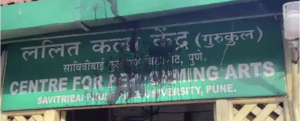
The Ministry of Information and Broadcasting, had sought amendments to the Cinematograph Act, 1952 ostensibly to ‘tackle the menace of piracy’, but has also suggested sweeping changes in the ‘revisional powers’ of the Central government, whereby the Central government can direct the Chairperson of the Central Board of Film Certification to re-examine a film after it has been certified for public exhibition.
Read the I & B ministry’s note here.
A number of filmmakers, academics, researchers, programmers, students, technicians, lawyers and civil
society have joined hands to present a detailed response to the Cinematograph (Amendment) Bill 2021, comments for which have been invited from the public by July 2, 2021.
Till date, more than a thousand endorsements have come in, according to a press release by the group which drafted the response. In a press release, they said that signatories include eminent members of the film community like Vijay Krishna Acharya, Dibakar Banerjee, Zoya Akhtar, Vetri Maaran, Anurag Kashyap, Nandita Das, Hansal Mehta, Jahnu Barua, Gauri Shinde, Chaitanya Tamhane, Nishtha Jain, Ramani RV, Avijit Mukul Kishore, Surabhi Sharma, Sheeba Chadha, Shabana Azmi, Honey Irani, Aamir Bashir, Tanuja Chandra, Adil Hussain, Renuka Shahane, Suhasini Maniratnam, Nitin Baid, Jabeen Merchant, Namrata Rao, Varun Grover, senior theatre artistes Sanjna Kapoor, Rohini Hattangady, Laxmi Chandrashekar, Dolly Thakore, Arundhati Nag, Anamika Haksar, Lillette Dubey, Jyoti Dogra and the Women in Cinema Collective (Kerala). Other signatories include film critics, journalists, IT professionals, lawyers, bankers, academics and members of the general public who are against the proposed amendments.
The group which drafted the response were film-makers Shilpi Gulati and Prateek Vats, academic Bhargav Rani and lawyers Sahana Manjesh and Mani Chander.
They draw attention to the history of censorship in India:
The Cinematograph Act was first introduced in 1918 to exert control over the colonies, and was premised on the perception that Indian masses were illiterate, unruly, and prone to be incited into passion by the influence of cinema.
More than a century later, India now stands as one of the leading producers of films in the world. However our censorship laws continue to view the audiences through a paternalistic lens exerting tight control over our cinematic practices.
In the last 12 years, there have been two committees – under Justice Mukul Mudgal, and veteran filmmaker Shyam Benegal – that have made progressive recommendations to upgrade the certification process of our country and
bring it in line with the changing attitudes, needs and demands of the 21st century. However, the much needed overhaul of the entire approach to censorship has not taken place. Instead of devising a cohesive strategy, governments so far have functioned in a piece-meal fashion that have failed to conclusively arrive at a policy that can be empowering for both the film fraternity as well as the audiences.
Their statement, inviting endorsements from the public, states:
As another blow to the film fraternity, the Ministry of Information and Broadcasting has proposed new amendments to the Cinematograph Act under which the Central Government would have the power to revoke or recall certification of films which have already been cleared by the Censor Board. Undermining the sovereignty of the Censor Board and the Supreme Court, this provision will effectively give the Central Government supreme power over cinema exhibition in the country potentially endangering freedom of expression and democratic dissent. This will also render filmmakers powerless at the hands of the state as more vulnerable to threats, vandalism and intimidation of mob censors.
The proposal to amend the Cinematograph Act comes two months after the Centre dissolved the Film Certification Appellate Tribunal (FCAT) in April 2021. Now, filmmakers unhappy with the decision of the Censor Board are left with no option but to appeal in the High Courts bearing legal cost of representation and financial loss due potential delays in film releases until the overburdened judicial system takes up the matter.
As concerned filmmakers, technicians, academics, researchers, lawyers and members of the civil society, we have drafted a response to the Ministry of I & B highlighting our concerns. We request you to kindly click the hyperlink below and endorse the document by Thursday, July 1, 2021 as the last date for sending in the submissions is 2nd July 2021.
Click on the link here to endorse.
Alternatively, you can mail in your suggestions directly to the ministry here by the due date.
Here is a summary of their suggestions:
- The Cinematograph (Amendment) Bill 2021 must clearly define the role of the Central
Board of Film Certification (CBFC) as a body which certifies film content for public
exhibition and not as a censoring body. - We recommend that the amendments giving powers to the Central Government to
revoke a film certificate must be dropped. We agree with the spirit of the Supreme Court
decision which held that this would violate the separation of powers in our democracy. - While we agree that film piracy poses real challenges to filmmakers, the proposed
amendments do not address this concern effectively merely by introducing a penal
provision. If introduced, sufficient exceptions on fair use, de minimis use and derivative
work specific to films must be created. Systemic solutions to genuinely counter piracy
must be introduced. - We recommend that the Film Certification Appellate Tribunal (FCAT) be reinstated, as it
enables affordable and accessible remedies to filmmakers. - The Cinematograph Act must be amended to include a clear definition of ‘public’
exhibition and bring under its purview only commercial films with substantive capital
investment and revenue models tied to theatrical exhibitions.
The detailed note, divided into two parts containing specific suggestions to each of the proposed amendments and substantive reasoning in support of their suggestions. can be accessed here.


